Resilient Eastside Initiative
Community development organizations are on the front lines of Detroit’s revitalization.
Across the city, they play vital roles, responding to a diversity of challenges that often differ from neighborhood to neighborhood.
Consistently, these groups are the bridge from their neighborhood to government, foundations and other funders; they help attract and coordinate resources to address neighborhood priorities. They engage community and they lift up the voices of residents. They often coordinate physical or economic development, and many provide needed social services.
During the evolution of the nearly 40-year-old Eastside Community Network (ECN), confronting the challenges of climate change – especially flooding – has become a major focus.
Expanding the Meaning of Community Development on Detroit’s East Side
Nearly 40 years ago, the forerunner to the Eastside Community Network was launched as the Warren/Conner Development Coalition. Like other similar organizations in the city, this one, named for a key east side city intersection, planted a flag for residents. It followed a community-led process to create a framework for community voice and planning, neighborhood reinvestment and strengthening of resident associations, businesses, and institutions.
Since 1984, the organization has implemented youth development programming, strengthened resident skills and institutions, implemented demonstration programs, facilitated business reinvestment, and formed and managed resident-driven coalitions. It has promoted the well-being of youth and adult residents and worked to restore neighborhoods. It sponsored the creation of partner organizations, including the service organization U SNAP BAC and the conservancy overseeing the revitalization of the 200-acre Chandler Park.
And since 2009, the organization has increasingly focused on the area’s environmental challenges, particularly the resultant flooding due to climate change when downpours overwhelm infrastructure built many decades ago.
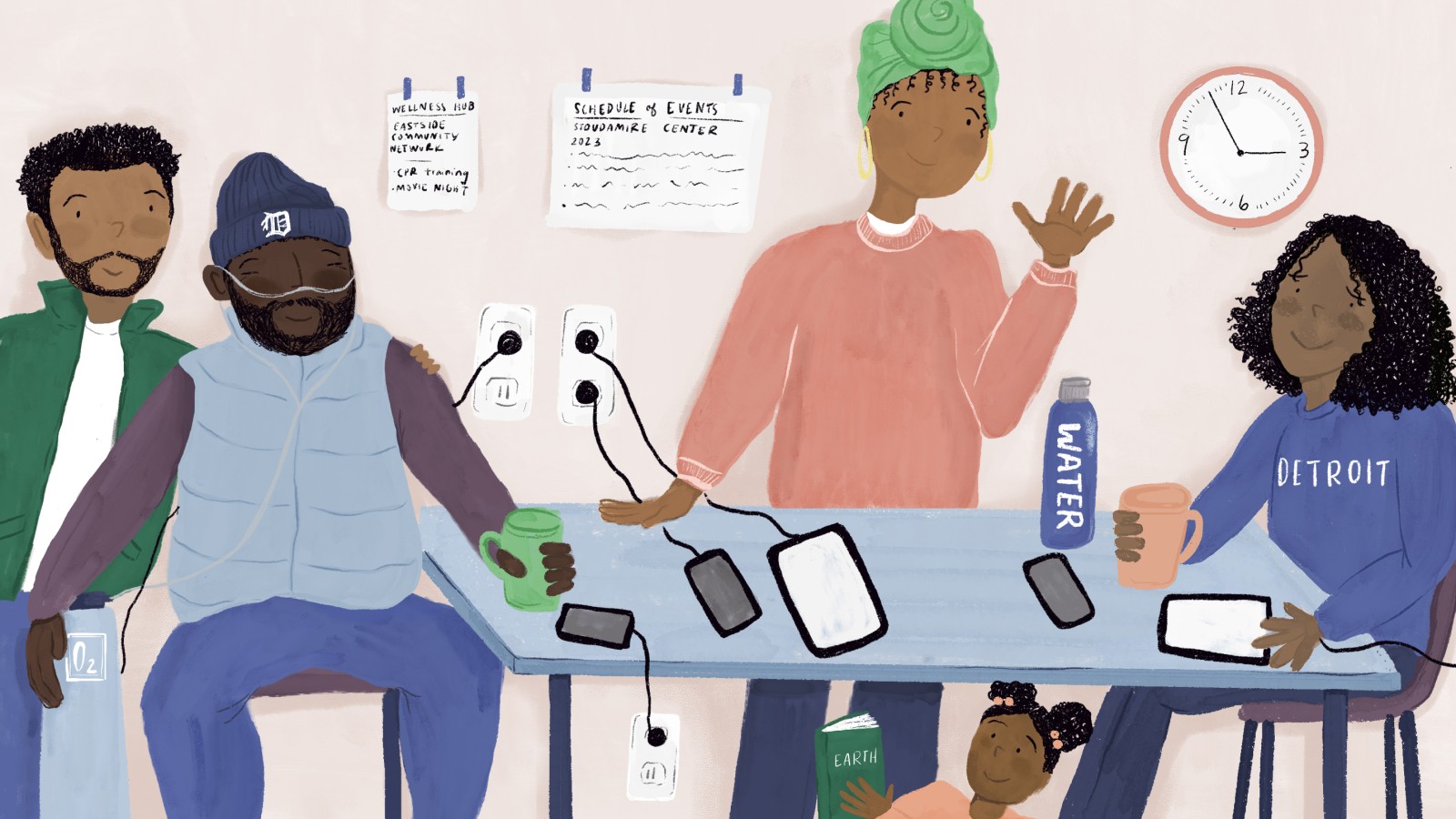
Key to that evolution was the support of philanthropy and other donors at the beginning of the recession when vacancy, blight, and disinvestment presented an existential threat to a 15- square-mile area, bounded by Mount Elliott, Alter Road, I-94, and the Detroit River. To that end, ECN convened resident and institutional leaders in creation of the Lower Eastside Action Plan (LEAP), a resident-driven plan to transform blight into productive green uses and leverage vacancy to promote green infrastructure. (In 2015, Warren/Conner Development rebranded as Eastside Community Network (ECN) to reflect this larger footprint than the one it began with.)
“ECN’s vision to lead on environmental issues at the intersection between health and climate issues put them at the forefront in Detroit. Elevate started equitable energy programs in Michigan in 2014 and quickly took note of the vision ECN was working toward,” says Tim Skrotzki, associate director of strategic consulting at Elevate. The Chicago-based nonprofit promotes equitable access to clean and affordable heat, power, and water in homes and communities across the country and has become an important ECN partner.
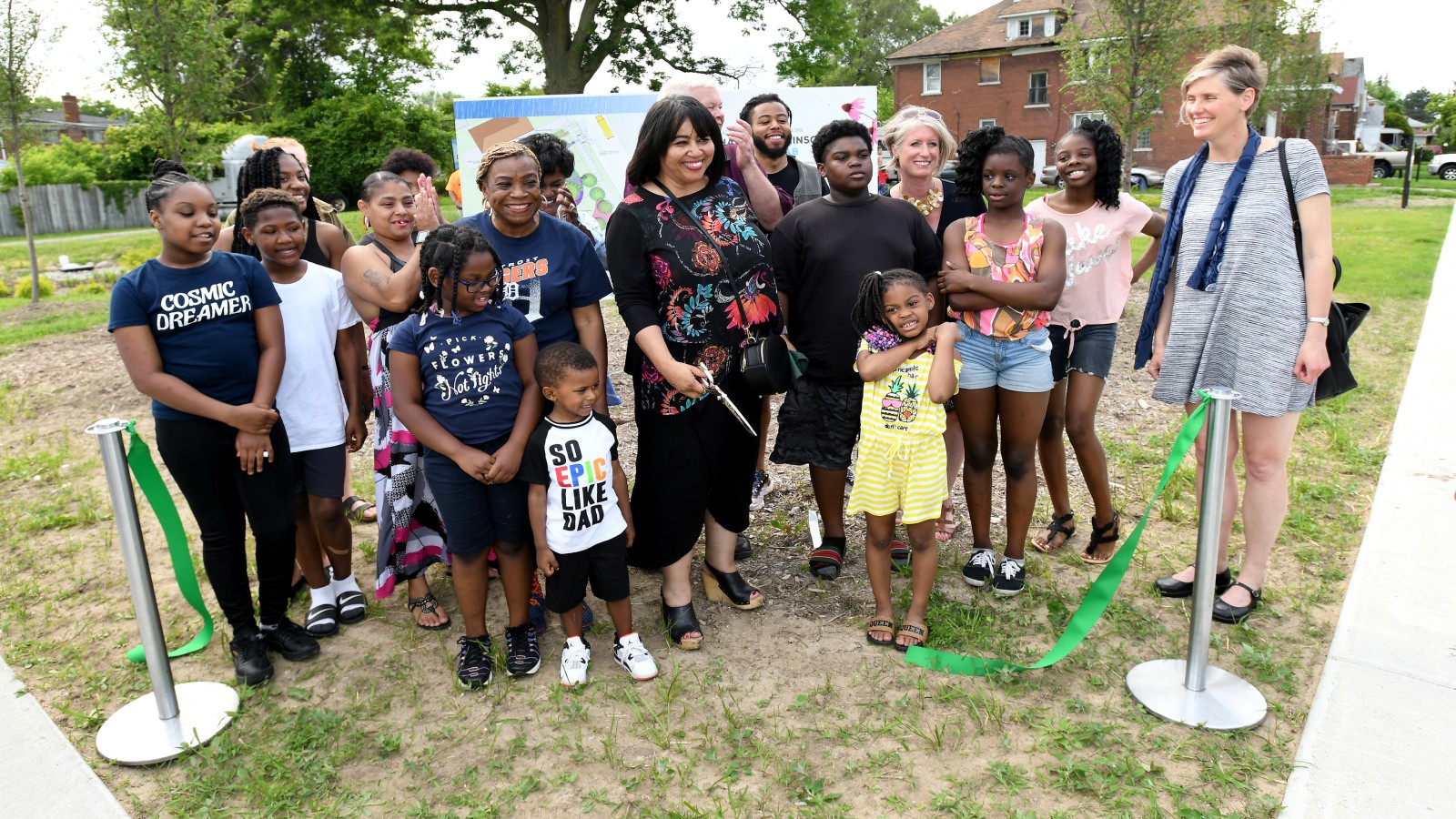
Engaging Residents with Environmental Issues
In 2016, Donna Givens Davidson, a former ECN deputy director, returned to replace ECN founder Maggie DeSantis as the organization’s chief executive officer.
Givens Davidson was faced with a decision on how to proceed on a recently awarded planning grant from Kresge Innovative Projects: Detroit (KIP:D), an initiative of Kresge’s Detroit Program. That grant explored whether green infrastructure could be used on vacant lots as a money-saving alternative to conventional maintenance.
Although the organization quickly learned that maintaining green infrastructure was more expensive than simple lawn mowing, partners at the Nature Conservancy and Insight Design Studio posed a different set of questions.
In the recent past, ECN and other organizations had invested hundreds of thousands of dollars in green infrastructure projects that were poorly sited, neglected, not maintained and failed to demonstrate effectiveness at diverting stormwater from the combined sewage system. Sometimes residents did not understand the value of projects and mowed wildflowers, removed trees and other plants, and otherwise disrupted planned uses. How could ECN work with subject-matter experts to educate and engage residents in supporting, siting, planning, installing and maintaining best practice green infrastructure based on resident needs, values and priorities?
The resulting plan led to another KIP:D grant plus support from other philanthropic partners to build a rain garden learning lab on three vacant lots across the street from Hamilton Academy, an area public school.
The Hamilton Outdoor Rainscape and Learning Lab grew from community plans to address blight and flooding.
Photo: The rainscape and learning lab is a site for both green infrastructure and teaching about related environmental issues.
Community engagement was key to the development of the rainscape and learning lab. The community was invited to a ribbon-cutting celebration when it was completed.
Photo: ECN’s Donna Givens Davidson at the opening ceremony.
A key feature is a “tree stump classroom,” an outdoor space to teach school children and train adults interested in earning a master rain garden certification.
Photo: A child plays on the stumps in the “tree stump classroom”.
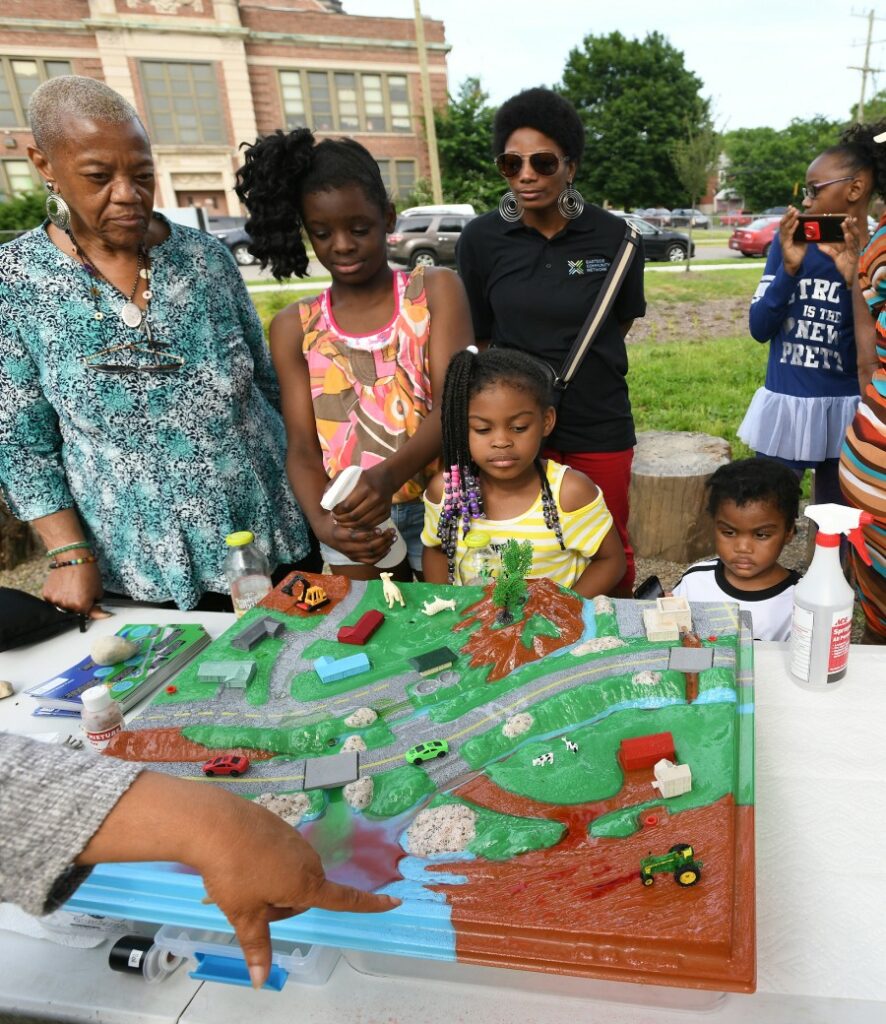
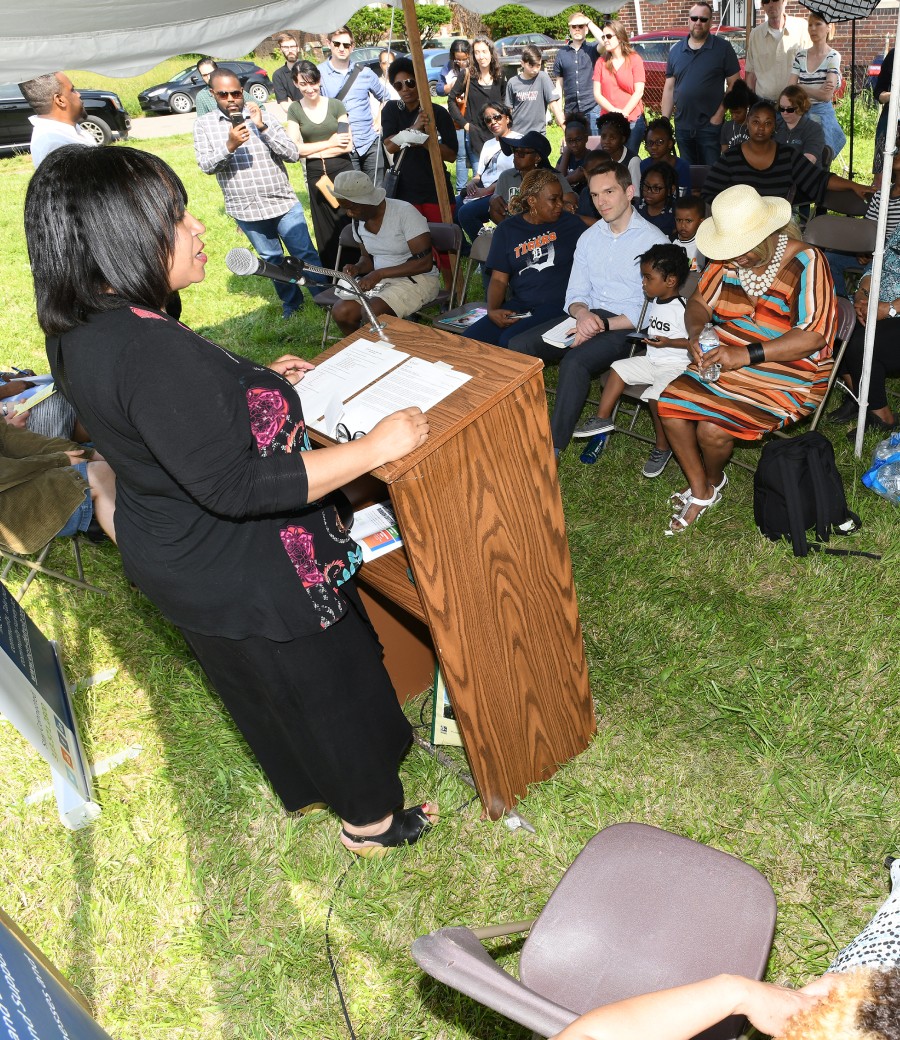
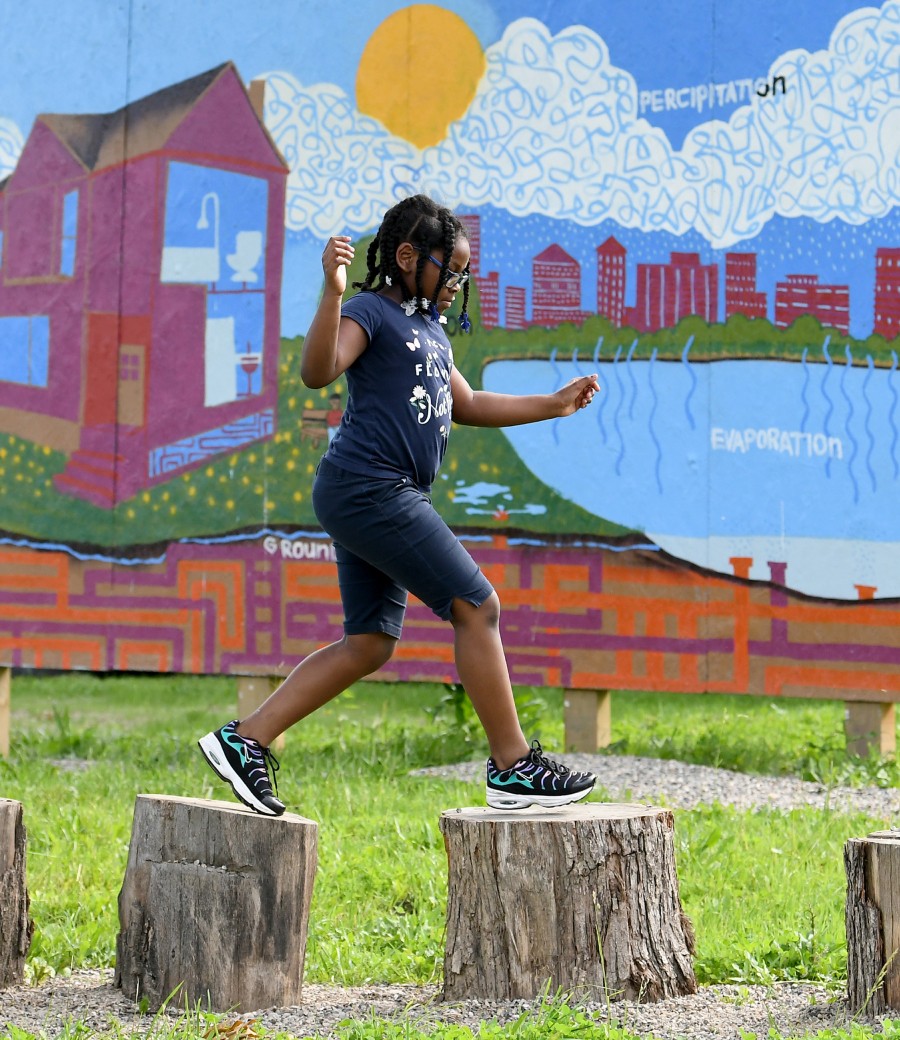
Wellness and Resilience
ECN has also transformed its offices on Connor Street near Warren Avenue into a wellness and climate resiliency hub. The reimagined facility was renamed the Stoudamire Wellness Hub to honor the inspirational community leader and entrepreneur Marlowe Stoudamire who died as the first wave of COVID-19 rocked the city in 2020.
Among its features are a fitness room, dance studio, community room, teen center and tech hub. In one innovative effort, last November a basement kitchen area was renovated as the Grill & Chill Kitchen; programming focuses on cooking that promotes health and well-being, on the role of food in building community and on exposing participants to food careers.
The Stoudamire Wellness Hub on Detroit’s east side serves all ages with a range of activities.
Photo by Steve Koss
Teen Advisory Council member cuts the ribbon for the opening of the Stoudamire’s new Grill & Chill Kitchen.
Photo by Steve Koss
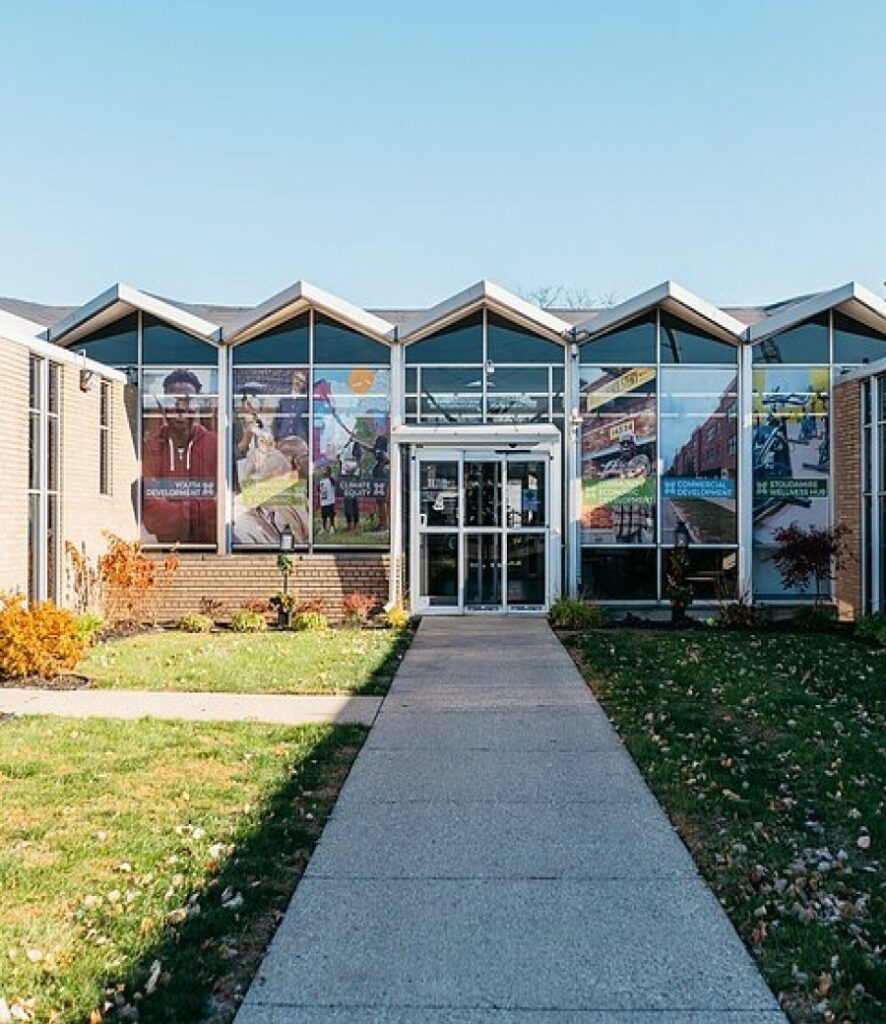
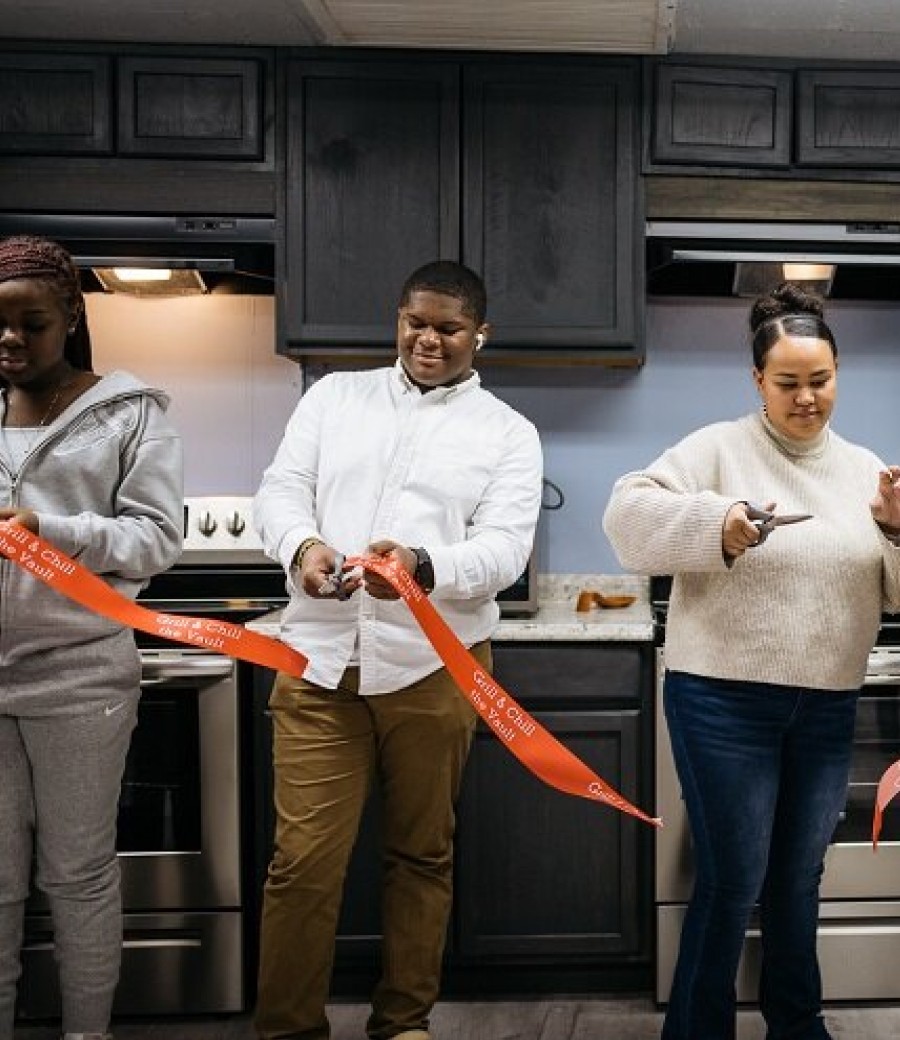
Notably, the center will also add solar energy infrastructure with battery backups and green stormwater infrastructure to prevent flooding. The goal of the redesign is to help residents meet their ongoing holistic health needs while also providing a safe location where their immediate needs can be met during a climate emergency. In a word, to promote resilience.
“When you have communities like ours, where you don’t have transportation, where housing is inadequate to protect people, there’s not a lot of local places in the community for residents to access,” says Givens Davidson.
So, what we want to do is have places inside the community where people can go to get their needs taken care of.
To that end, ECN has worked to connect with and support organizations of varied sizes across the east side working to provide similar services for their immediate neighbors.
Moreover, ECN recently hosted a press conference to announce the first phase of what’s being called Detroit’s Resilient Eastside Initiative in partnership with Elevate and the Detroit city government. The official network of hubs with solar powered backup and high technology is beginning with the Stoudamire, the Brilliant Detroit Chandler Park House, and a new Lenox Community Center being built by the city as part of the redevelopment of the 34-acre A.B. Ford Park on the Detroit riverfront.
Resilience efforts can be as large as the 8,116-square-foot community center being constructed by the city at A.B. Ford Park.
Photo: Rendering courtesy city of Detroit
A volleyball court will be among the recreational offerings of the new community center.
Photo: Rendering courtesy city of Detroit
The Bailey Park NDC Community Resilience Hub, “The Hub,” is housed in this modest bungalow.
Photo by Steve Koss
In a decade leading Bailey Park Neighborhood Development Corp., Katrina Watkins has pushed efforts to improve both day-to-day life and capacity for times of emergency.
Photo by Steve Koss
At the other extreme from the city’s 8,000-plus-square-foot center, efforts like the 12-foot-by-50-foot trailer operated by the What About Us Inc. are also key to boosting resilience in Detroit.
Photo by W. Kim Heron
What About Us leader Tammara Howard explains that in times of emergency, the trailer’s gas generator provides electricity for charging cells phones and the like – and for the refrigeration of neighbors’ essential medicines.
Photo by W. Kim Heron
For an exercise in the meaning of resilience, children made paper houses to display aspects of resilience.
Photo by W. Kim Heron
Educating the community about resilience, beginning with neighborhood children, is an important part of the What About Us mission.
Photo by W. Kim Heron
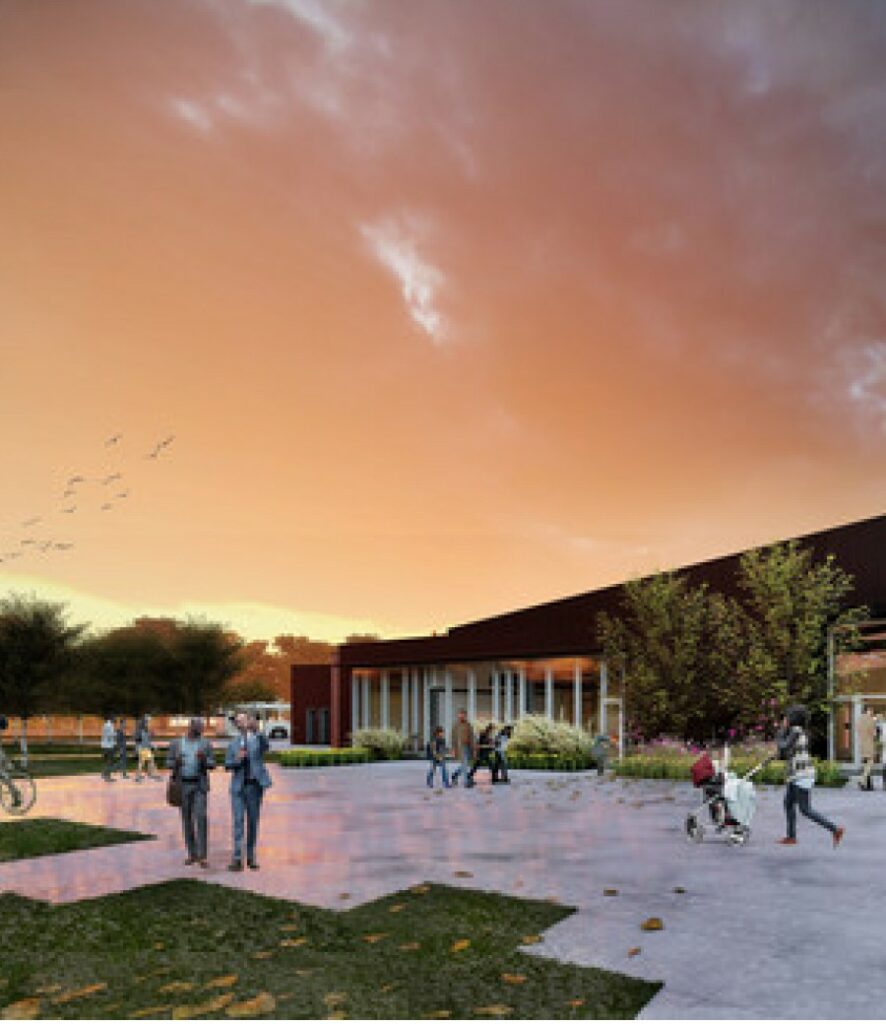
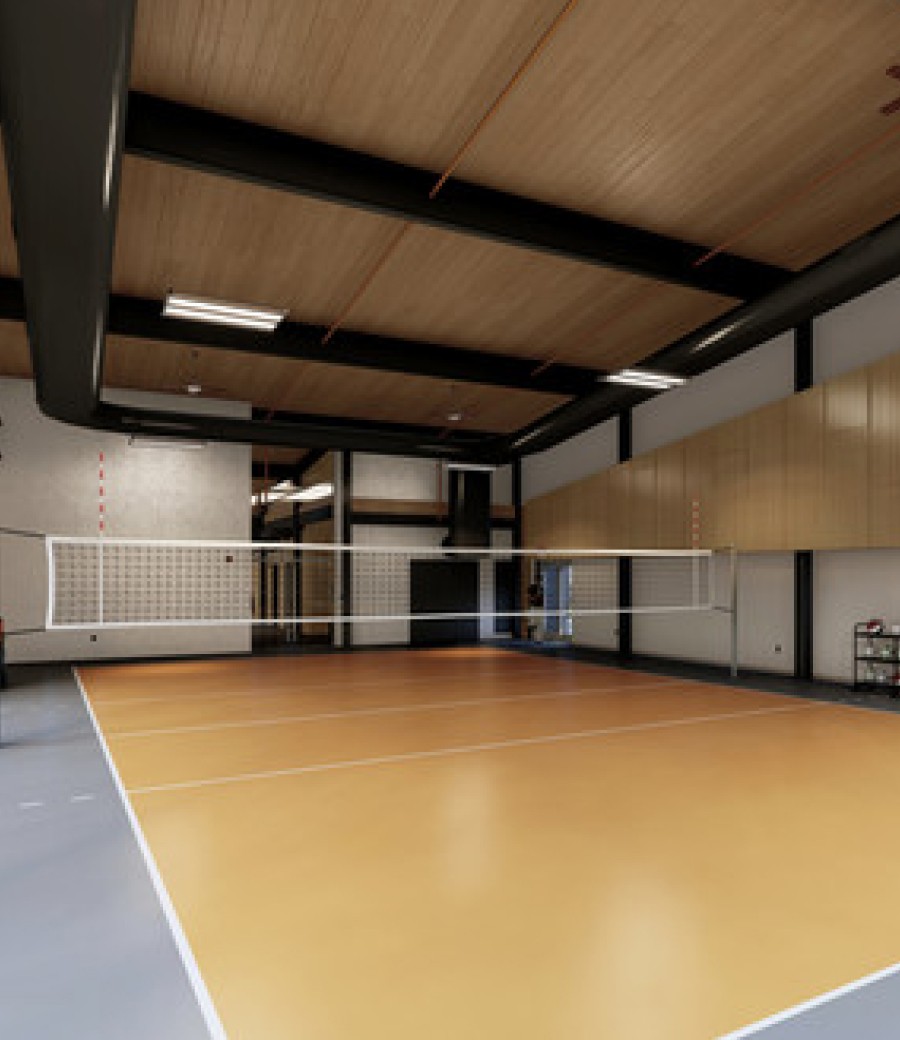
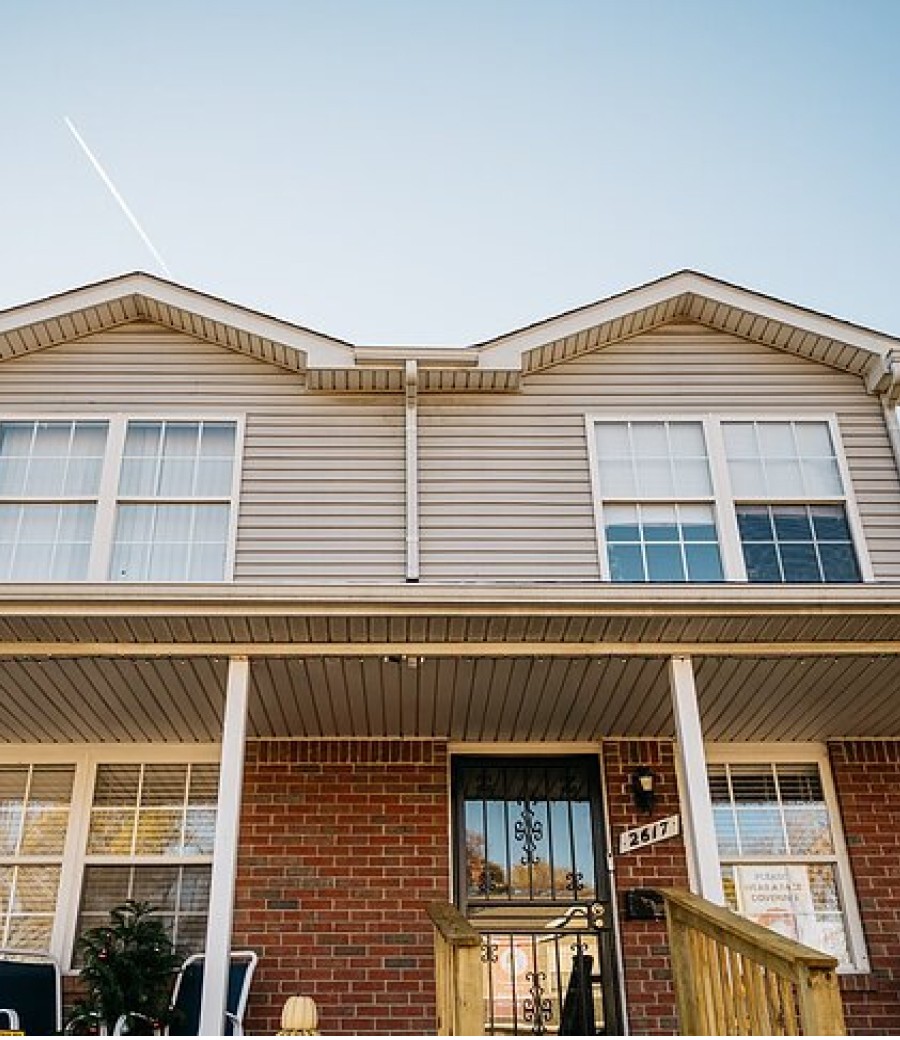
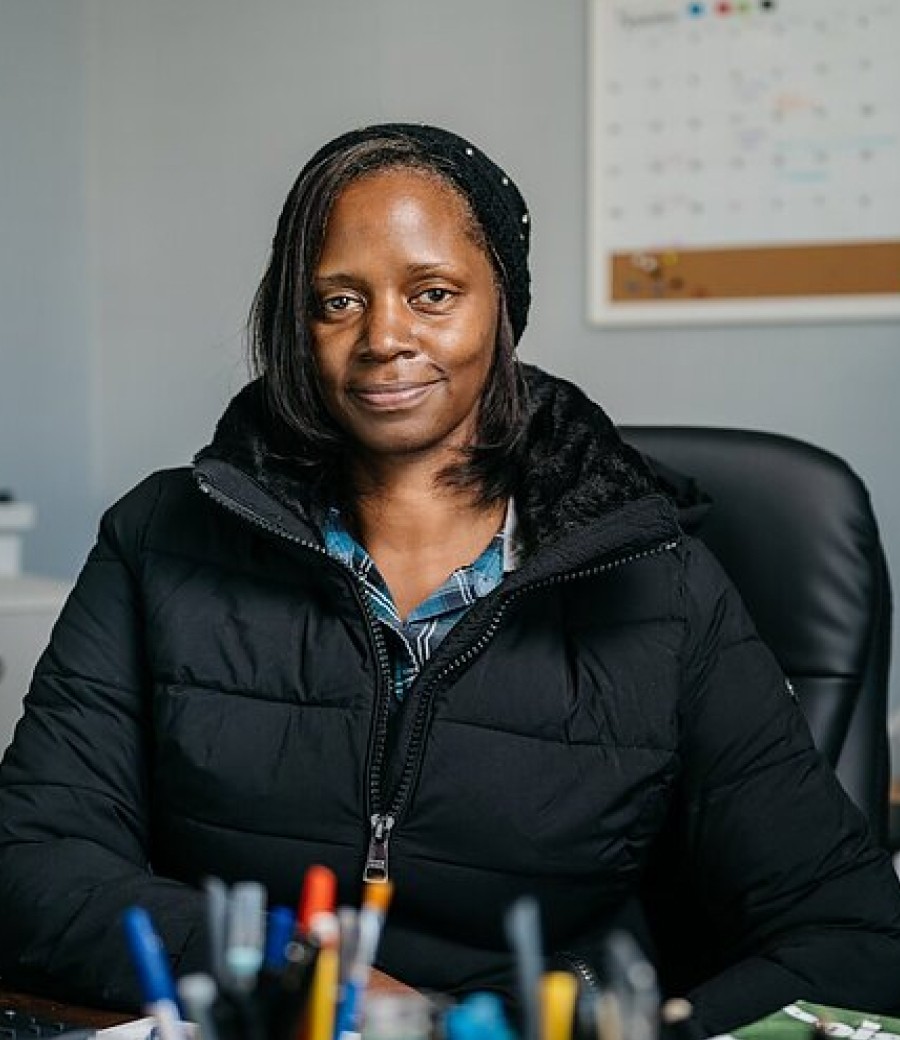
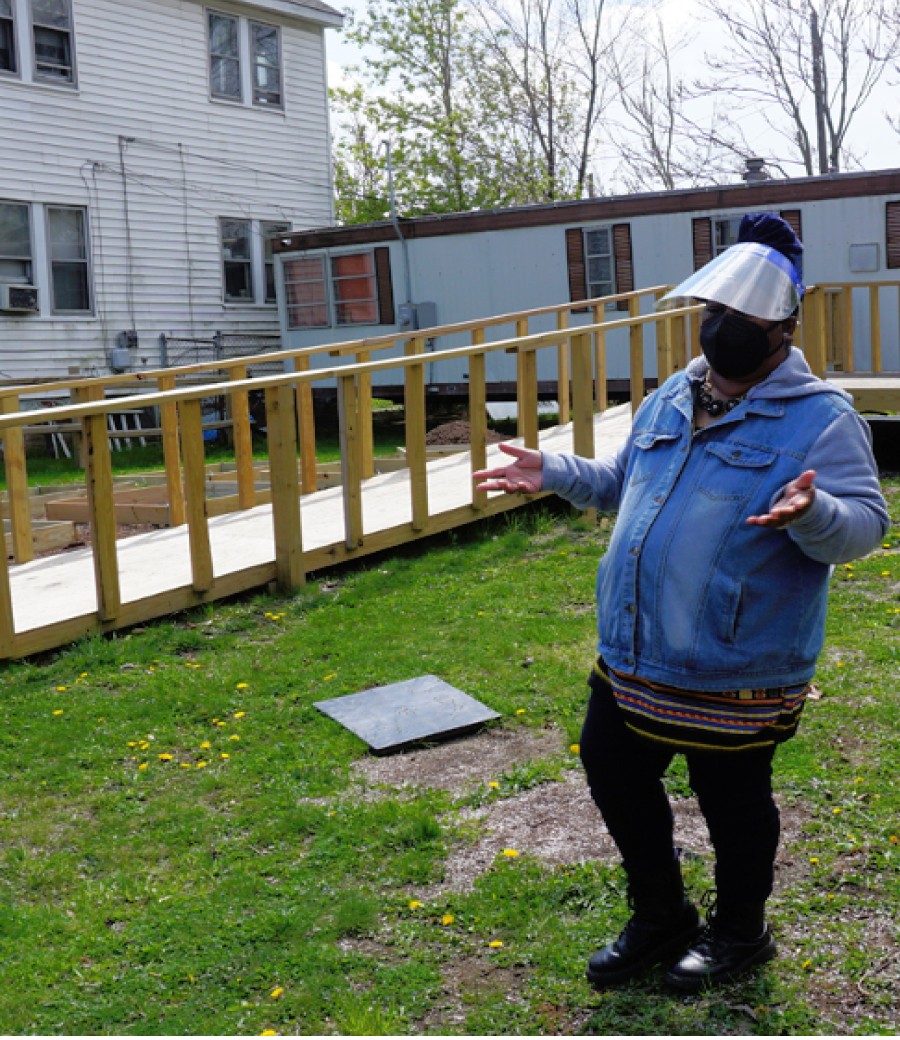
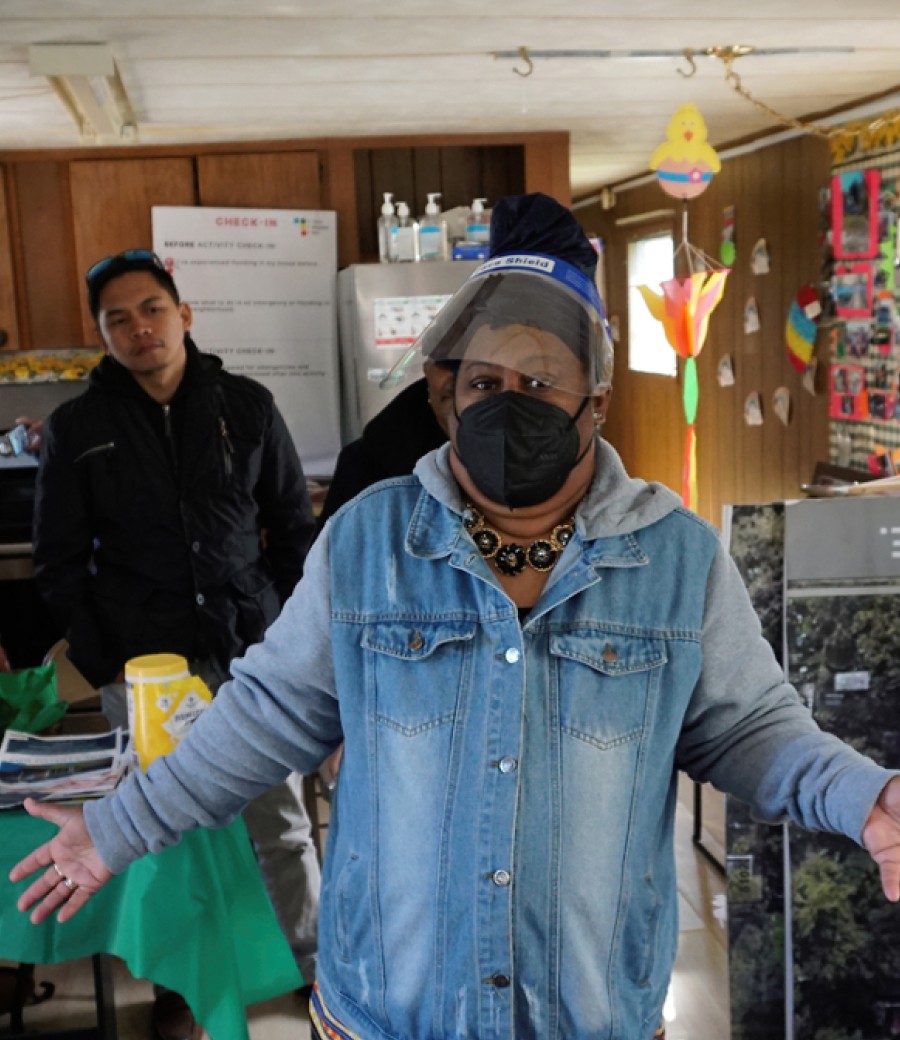
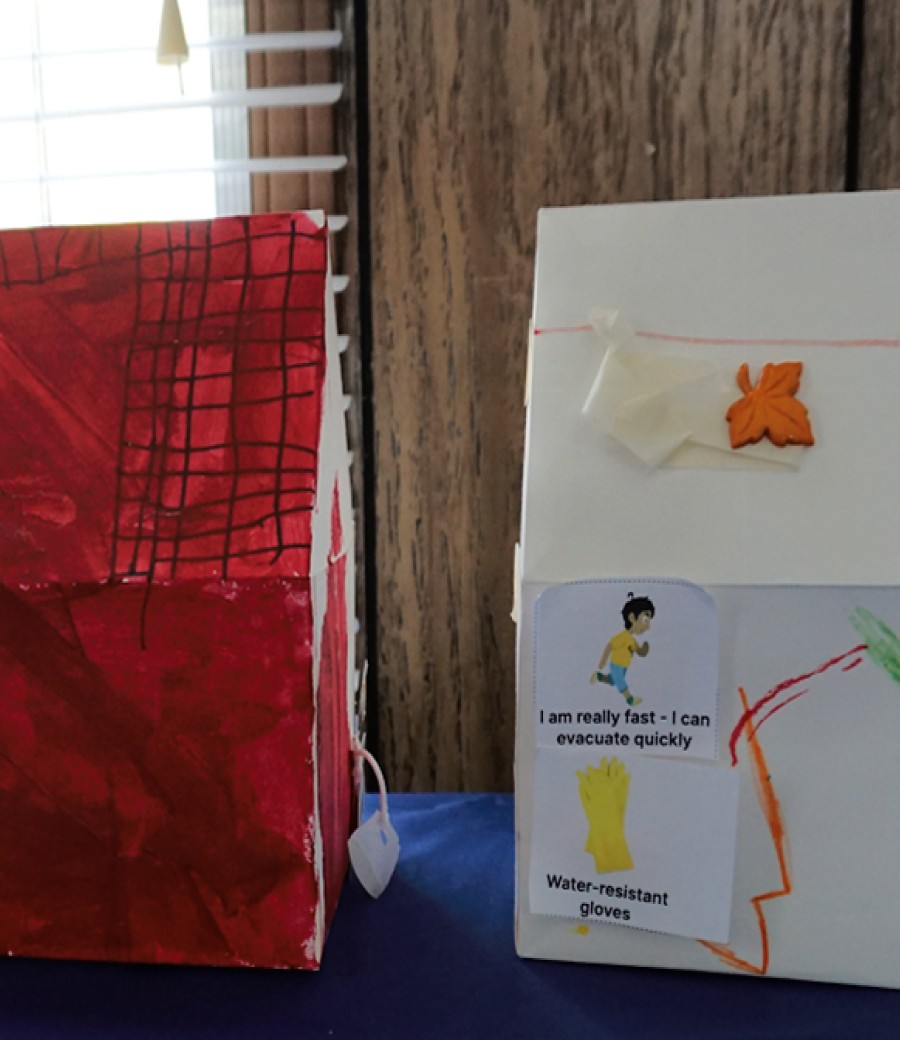
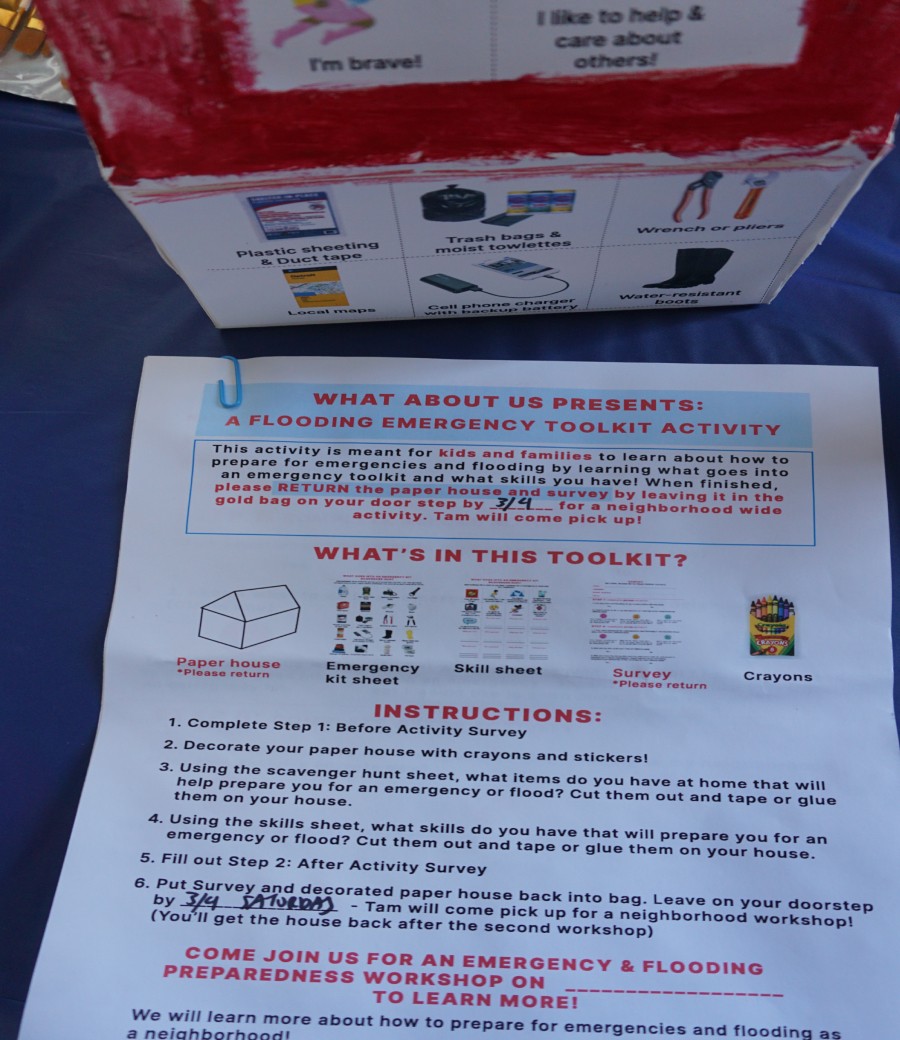
“A network of resilience hubs with solar and battery storage allows for a reliable electricity supply during an emergency like a power outage. It’s an important part of creating a resilient power supply, but real community resiliency is much more than keeping the power on in an emergency. Having a network of hubs that provide reliable services all the time is vital to communities that thrive,” says Elevate’s Skrotzki.
Wendy Lewis Jackson, managing director of Kresge’s Detroit Program, points out that Kresge’s support for ECN and its work rests not only on the physical infrastructure being created but on the human side of the equation as well.
“ECN has been exemplary when it comes to building resident engagement on key community issues,” says Jackson. “Residents who engage daily with longstanding issues are essential in developing equitable solutions that meet community needs.”
Along with other philanthropic and corporate supporters, the Detroit Program has supported ECN through Enterprise Community Partners’ Community Development Organization (CDO) Fund, through KIP:D (now KIP:D+), and in partnership with Kresge’s Environment and Human Services Program for resilience efforts with Elevate. ECN is also a grantee of the Climate Change, Health and Equity initiative of Kresge’s Environment and Health programs.
Organizing for a Sustainable Future
As it has developed its environmental focus over the years, ECN has begun to engage in advocacy. On matters of climate equity, the nonprofit works closely with an advisory group made up of residents, city and state officials, and technical experts from across Detroit. It’s also been involved with an environmental justice struggle to get Stellantis (formerly Fiat Chrysler) to reduce emissions at its new Detroit Assembly Complex-Mack factory on the city’s east side.
There’s a lot of work to be done on the city’s east side, however, environmental and otherwise. Residents there must deal with the legacy of heavy industry in the area, air pollution, toxins in the soil, aging infrastructure, and the impact of climate change. And the long shadows of poverty and institutional racism make the community more vulnerable to all these issues and more.

Reflecting on this situation, Givens Davidson is reminded of her favorite prayer, the Serenity Prayer: “God, grant me the serenity to accept the things I cannot change, courage to change the things I can, and wisdom to know the difference.” In those words, she finds hope that by working with others in the community her organization will play its part in creating a more sustainable future for the east side and beyond.
“We’re working with people inside our community to change the things we can, and then encouraging them to demand the changes we cannot make on our own,” she says. “I think that the politicians are aware of us. And I think when we are successful in completing the wellness hub, we’ll have a replicable demonstration that can be practiced across the city of Detroit.”
An earlier version of this article, written by journalist David Sands, appeared on the Model D website. It was part of Resilient Neighborhoods, a Kresge-funded reporting and engagement series that examines how Detroit residents and community development organizations are working together to strengthen local neighborhoods.
Now + Then Stories
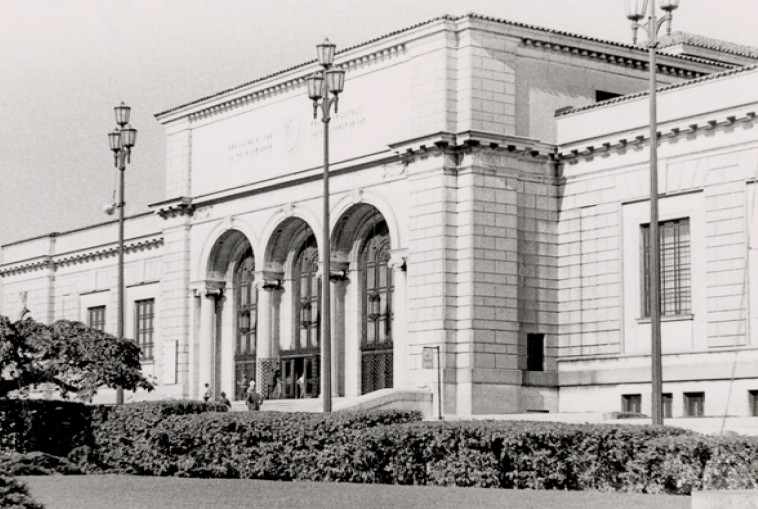
Now + Then Detroit
From the very first grant, our hometown remains a focus and a calling.
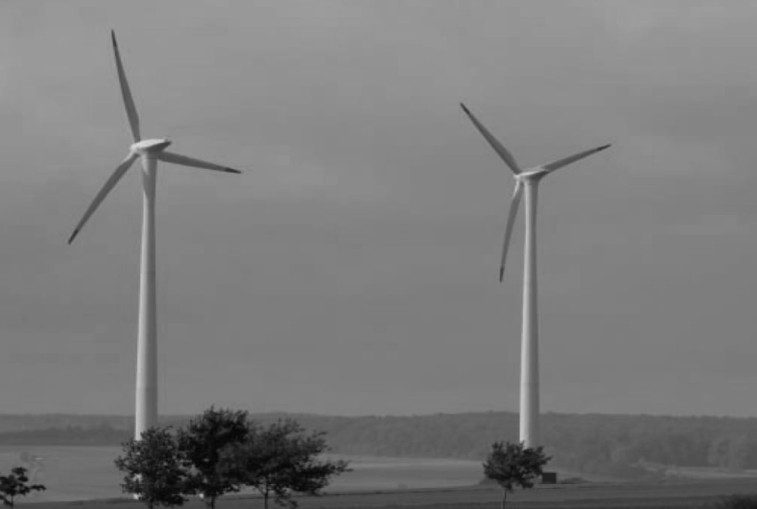
Now + Then Environment
Recognizing climate changes’ impact on people and places dates back to green building work.
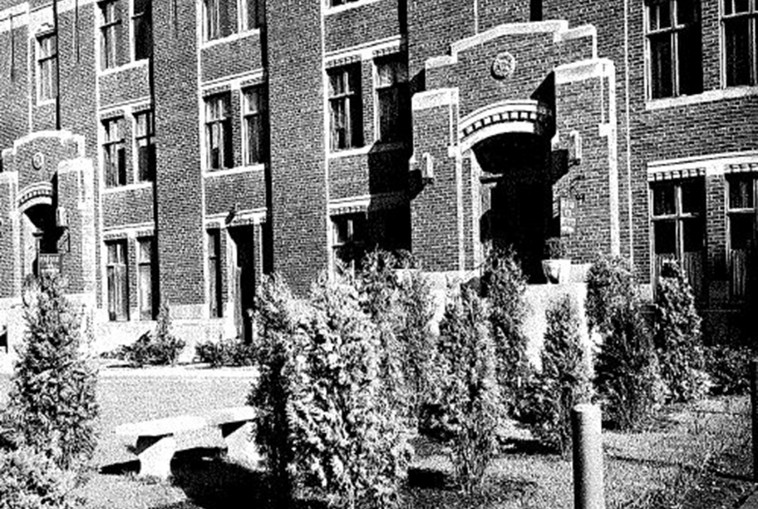
Now + Then Health
A founding area of support refines its strategy to community health, health equity.
